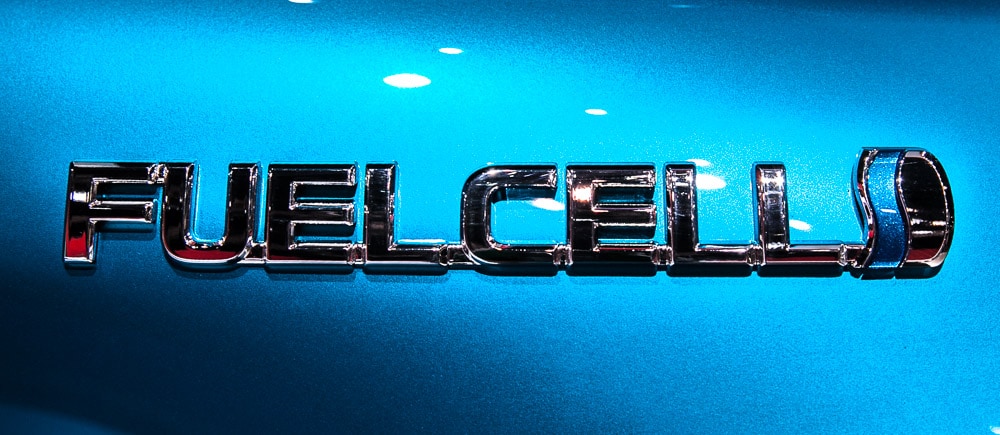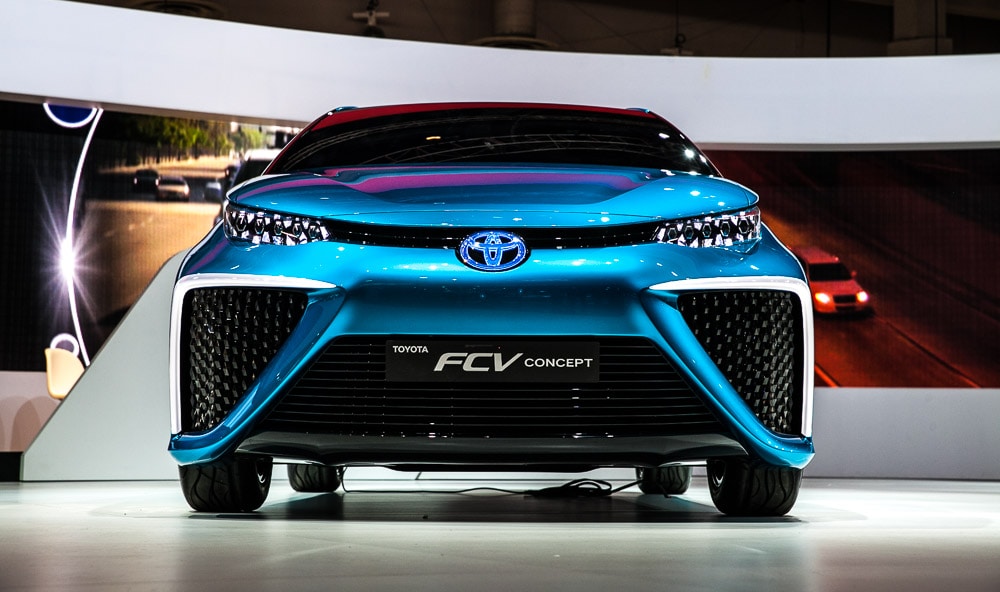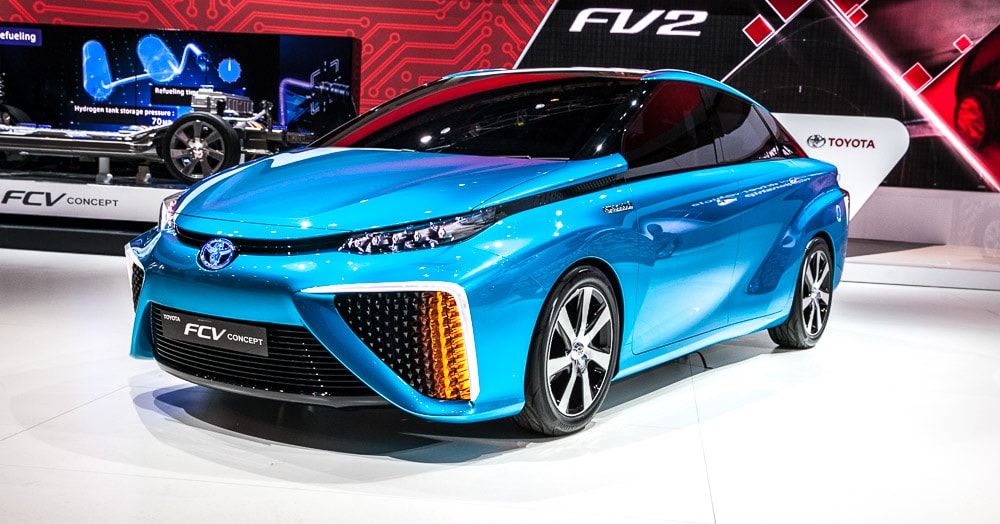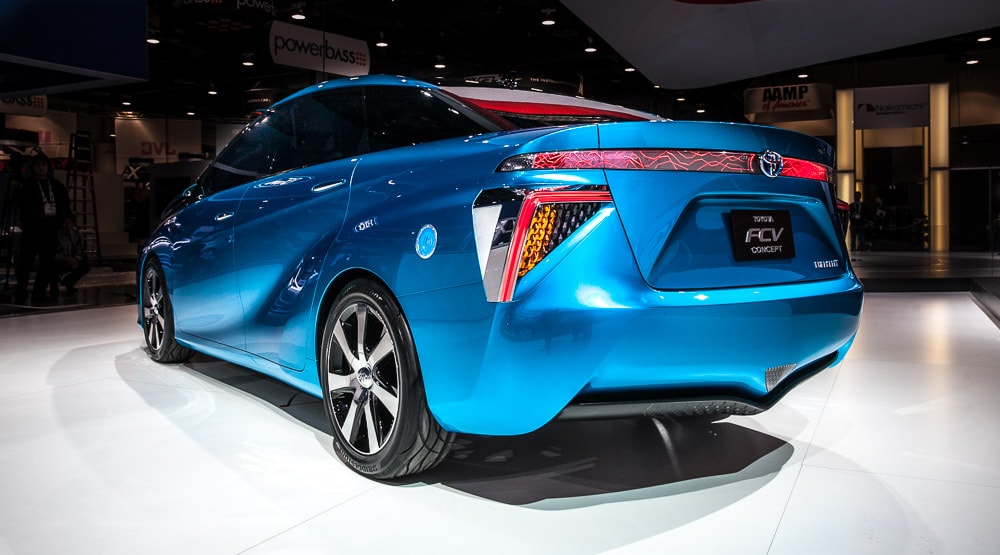

A car fueled exclusively by hydrogen, bound for commercial production in the US and Europe? Sounds like something out of a science fiction movie, doesn't it? Well, fantasy is about to become a reality in 2015 with the introduction onto the US market of the Toyota Fuel Cell Hydrogen Vehicle (FCHV) sedan. As yet, there is no set date for release, but Dayton Toyota South Brunswick, NJ has learned that the car should arrive on our shores by next summer.

The hydrogen fuel, which can be supplied from a diverse range of sources including solar and wind power, is stored in two high-pressure tanks and delivered to the vehicle's fuel cell stack where it is combined with oxygen to produce a chemical reaction. This reaction generates a stream of negative electrons which provide the electricity to power the drive motor. According to tests undertaken in Japan, a fully fueled FCHV produces enough power to supply a family home for an entire week (10kW). The fuel can be delivered within a three-minute time span, roughly the same amount of time it currently takes to fill a car at a conventional gas station.

The only byproduct produced by the reaction between the hydrogen and oxygen in the fuel cells is water vapor. The need to reduce the carbon emissions produced by vehicles using gasoline and petrol, and our rapidly dwindling supply of fossil fuels, is what now drives the large-scale commercial production of this highly eco-friendly car.

The FCHV concept was first exhibited at the 2013 Tokyo Motor show and made its North American debut at the 2014 Consumer Electronics Show earlier this year. The flowing lines of the sedan's exterior are designed to mimic the flow of oxygen and hydrogen in the car's interior. With an acceleration rate of 0 to 60 miles per hour in 10 seconds, it also provides the smooth, quiet ride that you have come to expect from a gasoline-powered car. The cruising range of the car comes in at an impressive 300 miles (434km). The FCHV has also been submitted to a range of grueling tests in extreme conditions and is capable of a cold start-up at a temperature of -30°C (22°F).
The initial introduction of the car will be limited to those areas that have hydrogen filling stations. Toyota is currently partnering with the University of California Irvine's Advanced Power and Energy Program (APEP) to build a network of hydrogen filling stations covering the San Francisco Bay Area, Silicon Valley, Los Angeles, and both San Diego and Orange counties. The plan is to have 100 hydrogen stations built by 2024.
Are you currently in the market for an eco-friendly car? It may be a while yet before hydrogen filling stations make their debut in South Brunswick, NJ, but Dayton Toyota has a range of hybrid cars that will lower your carbon footprint. Our Toyota hybrids include the 2014 Prius Plug-in Hatchback, the Prius V, and the Highlander hybrid.
